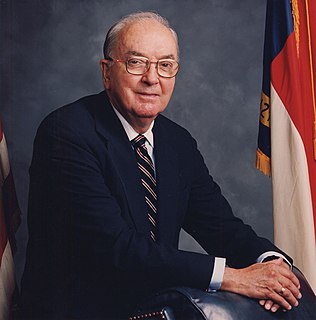Цитата Махатхира Мохамада
Все лидеры должны иметь некоторую власть. Без власти вы не можете быть лидером.
Связанные цитаты
Ошибки (лидеров) усугубляются количеством тех, кто следует за ними без вопросов. Харизматические лидеры, как правило, создают последователей, властные структуры, и эти властные структуры, как правило, захватываются коррумпированными людьми. Я не думаю, что старая поговорка о том, что «власть развращает, а абсолютная власть развращает абсолютно», верна: я думаю, что власть притягивает подкупающих.
Конституция — это акт не правительства, а народа, образующего правительство; а правительство без конституции есть власть без права. Всякая власть, осуществляемая над нацией, должна иметь какое-то начало. Это должно быть либо делегировано, либо принято. Других источников нет. Вся делегированная власть есть доверие, а всякая принятая власть есть узурпация. Время не меняет природу и качество ни того, ни другого.
Одной из многих причин, по которой Падма всегда будет второстепенной силой в Совете, является его вера в то, что вся власть должна быть взята, что вся сила должна исходить из страха. Истинная сила приходит, когда другие предлагают ее вам, а вы просто принимаете ее как дар, а не как трофеи какой-то личной войны.
Идет ли она от деспотического суверена или избранного президента, от кровожадного генерала или любимого лидера, я считаю власть бесчеловечным и ненавистным явлением. В той же мере, в какой я не понимаю власть, я понимаю тех, кто выступает против власти, кто критикует власть, кто оспаривает власть, особенно тех, кто восстает против власти, навязанной жестокостью.
Необходимость власти очевидна, потому что нельзя жить без порядка; но распределение власти произвольно, потому что все люди одинаковы или почти одинаковы. Однако власть не должна казаться распределенной произвольно, потому что тогда она не будет признана властью. Следовательно, престиж, являющийся иллюзией, составляет самую сущность власти.
Самая экстремистская власть, на которую может претендовать любой политический лидер, — это возможность казнить своих граждан без каких-либо обвинений или надлежащей правовой процедуры, вдали от поля боя. Администрация Обамы не только утверждала именно эту власть в теории, но и применяла ее на практике.
Для того чтобы люди с головой окунулись в предприятие масштабных перемен, они должны быть крайне недовольны, но не обездолены, и у них должно быть ощущение, что обладание какой-то могущественной доктриной, непогрешимым лидером или какой-то новой техникой открывает им доступ к источнику непреодолимой силы. власть.
Власть, правильно понятая, есть не что иное, как способность достигать цели... одна из величайших проблем истории состоит в том, что понятия любви и власти обычно противопоставляются как противоположности --- полярные противоположности --- так что любовь отождествляется с отречение от власти и власть с отрицанием любви... Нужно осознание того, что власть без любви безрассудна и оскорбительна, а любовь без власти сентиментальна и анемична. Власть в лучшем виде — это любовь, реализующая требования справедливости, а в лучшем случае справедливость — это сила, исправляющая все, что противостоит любви.
Мы, индийцы, не учим тому, что есть только один бог. Мы знаем, что все имеет силу, в том числе самые неодушевленные, несущественные вещи. Камни обладают силой. Травинка обладает силой. Деревья и облака и все наши родственники в мире насекомых и животных обладают силой. Мы считаем, что должны уважать эту силу, признавая ее присутствие. Почитая таким образом силу духов, она становится и нашей силой. Он защищает нас.
Павел, Лютер, Веслей — кем были бы эти избранники Божьи без отличительного и контролирующего элемента молитвы? Они были лидерами для Бога, потому что были сильными в молитве. Они были лидерами не из-за блестящей мысли, не из-за неисчерпаемости ресурсов, из-за своей великолепной культуры или природных дарований, а из-за того, что силой молитвы они могли управлять силой Бога.

































